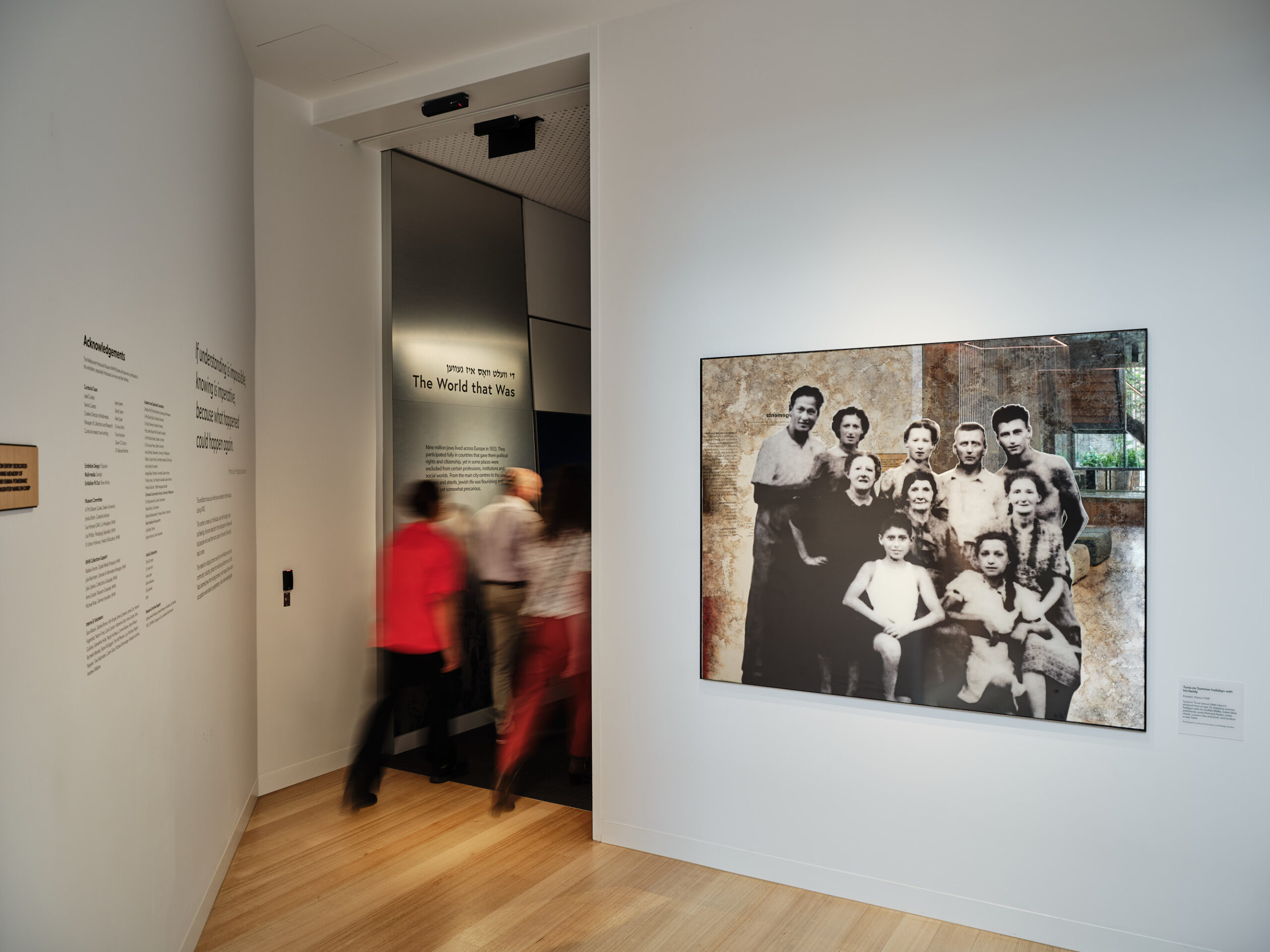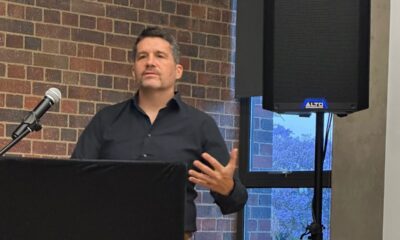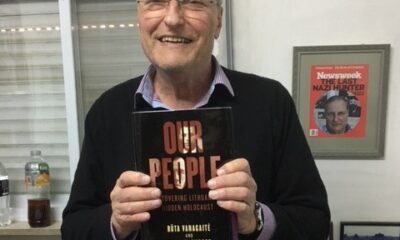
Personal Story

Holocaust Museum reveals unlaminated truth about prejudice
Being in Melbourne when an employee at the Elsternwick branch of Officeworks refused to laminate a Jewish newspaper article, citing her “pro-Palestine” stance as the reason, I felt the need to visit the Melbourne Holocaust Museum. Elsternwick is home to approximately 23 600 Jewish people and is Australia’s largest Jewish community and cultural home.
As a South African tourist, I was curious to see what this person, who worked at the Australian chain of office supply stores, might learn if she spent some time in the museum. She had received a final warning, additional training, relocation to a different store, and was required to visit the museum. Perhaps she might understand the profound impact of antisemitism.
We started our tour with a virtual reality experience, which provides a visceral connection to the history of the Holocaust. It’s the story of John (Szaja) Chaskiel, a Holocaust survivor. Szaja was sent to the Poznan slave labour camp when he was 10 years old, and later to Łódź Ghetto. In 1944, he was transported to Auschwitz-Birkenau, and then sent on a death march, before reaching the Buchenwald concentration camp. After liberation, Szaja emigrated to Australia in 1950, and lived in Melbourne until his death in 2023.
We followed him from his hometown of Wieluń in Poland, to Łódź, Auschwitz, the Buchenwald camp, and finally back home to Melbourne. Szaja shared his testimony at the sites of his incarceration, and we walked with him through the journey of his past as though we were right there beside him.
The realism and detail were overwhelming, allowing us to gain a deeper understanding of the daily horrors faced by the prisoners. This technological innovation is a powerful tool for empathy and education, making the past feel immediate and real.
On the second floor of the building, we listened to a few testimonies from Holocaust survivors who had settled in Melbourne. I was reminded of the strength of the human spirit. Despite unimaginable suffering, these survivors rebuilt their lives, and their stories are a testament to the power of hope and resilience.
Photographs of smiling children, letters filled with hope, and personal belongings left behind spoke of lives interrupted, dreams cut short, and egregious social control. These artifacts aren’t just relics of the past; they’re poignant reminders of the resilience and humanity of the victims.
Walking around the exhibits, I saw examples of the spread of antisemitic propaganda in pre-war Europe; the erosion of Jewish rights; and the devastating indifference of the world. It showed how such an atrocity could have occurred, and underscored the importance of vigilance in the face of hatred and bigotry.
Antisemitism isn’t just something that happened in the past; it’s a persistent threat that continues to rear its ugly head. The rise in antisemitism post-7 October is a stark reminder of this. Hate crimes against Jews have increased, and antisemitic rhetoric has become more prevalent. This resurgence of hatred makes the mission of Holocaust museums around the world more urgent than ever. By educating people about the Holocaust, these institutions play an important role in combating antisemitism and fostering a culture of tolerance and understanding.
I spent about a week after I left the museum reflecting on why a visit to such an institution would be beneficial for the likes of the woman from Officeworks. It wasn’t immediately apparent, as I initially thought that it may seem to people like her that the Jewish people – and Israelis in particular – are treating the Palestinian people the same way the Nazis treated the Jews.
My thoughts moved to a reflection on the parallels between the past and the present. The Holocaust didn’t begin with mass extermination; it began with words – hateful rhetoric that dehumanised Jews and laid the groundwork for genocide. We’re now experiencing a disturbing echo of this in the rise of antisemitic behaviour, hate speech, and attacks on Jewish institutions. In Melbourne, a hamburger restaurant in a Jewish area was torched as the owner was Jewish. Another shop on the same road is receiving messages of hate online. All because the owners are Jewish.
The few hours I spent at the museum reinforced my belief in the importance of remembering the past to build a better future. As a South African, I understand the impact of systemic discrimination and the importance of fighting it. My visit reminded me that we need to remember, to educate, and to act. In a world still grappling with the scourge of antisemitism, its message is more important than ever.-
As we were leaving, one of the volunteers suggested that we take some time to process what we had just witnessed and to be kind to ourselves. Her words were a gentle reminder of the emotional toll that confronting such profound human suffering can take.
- Kim Hatchuel is the proofreader at the SA Jewish Report.










